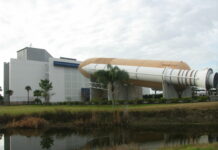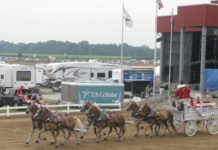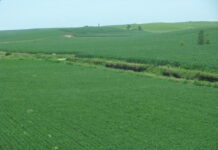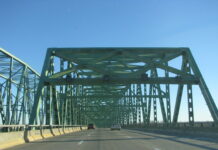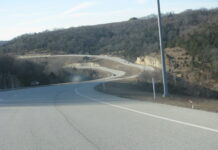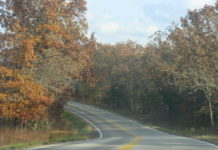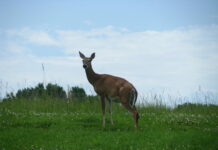Photo Credit: Global Diaspora News (www.GlobalDiasporaNews.com).
A then 10-year-old Ronald Lamola watched with joy as his parents went to cast their votes in South Africa’s first democratic elections in April 1994.
“I also saw on the television long queues of people ushering in our new freedom when they were voting,” Lamola said on Saturday.
Fast-forward to today and Lamola is South Africa’s Minister of Justice and Correctional Services.
The Minister’s comments come as hundreds of people gathered at the Union Buildings in Pretoria to celebrate the 30th anniversary of South Africa’s democratic dispensation following the country’s first democratic elections on 27 April 1994.
President Cyril Ramaphosa led the National Freedom Day celebrations at the Union Buildings under the theme “30 Years of Democracy, Partnership, and Growth.”
Reflecting on growing up in apartheid South Africa which oppressed the majority of its population at the time, the Minister said as a young boy who grew up on a farm in Komatipoort in the then Eastern Transvaal which today is known as Mpumalanga province, he could not attend the same schools as the white children on the farm.
“We could not play or … have the same dreams of being engineers, astronauts or being lawyers. Today, I stand before you as an LLB (Bachelor of Laws) graduate of the University of Venda who was funded by the National Student Financial Aid Scheme (NSFAS). Our country’s biggest breakout of generational poverty.
“I speak with conviction when I say I am a Tintswalo. Every household in this country has a Tintswalo. Freedom made the dreams of many black kids like myself possible to be whoever we wanted to be. [Whether it be] engineers, astronauts, etc which was not possible under apartheid,” the Minister said.
First referred to by President Cyril Ramaphosa in his State of the Nation Address (SONA) in February, Tintswalo is a child born at the dawn of freedom in 1994. Tintswalo grew up in a society that was worlds apart from the South Africa of her parents, grandparents and great-grandparents.
As a child who went to university in a democratic South Africa, the Minister completed his studies with the assistance of the NSFAS which provides financial aid to South African students using funds provided mainly by the government.
“Freedom made it possible for many black kids like me to be whoever we wanted to be… The sky is the limit. Freedom came through the blood and sweat of our struggle heroes. On this day 30 years ago, a new dawn was ushered in through the first democratic elections. Some of the freedoms that we take for granted today were reserved for only white people before 1994,” the Minister explained.
Nation building
He said nation building was at the core of the vision and a central piece to the democratisation of South Africa.
“This was reaffirmed by our 1996 Constitution, which is the supreme law of our country that affirms the democratic values of human dignity, equality, and freedom.
“It placed on the state the obligation to respect, protect, promote and fulfil the human rights that are enshrined within our Bill of Rights. We moved from parliamentary sovereignty to a constitutional democracy.
“We now have the freedom to love whoever we want to love. We now have the freedom to go wherever we want to go. We now have the freedom to study whatever we want to study and we now have the freedom of trade.”
He said these freedoms came at a “sacrifice”.
“As a country, we have a responsibility to continue to fight against injustice anywhere in the world.”
While the country had previously been under 300 years of colonial rule, government has laid a solid foundation to build a better life for all.
With South Africa due to hold its seventh democratic elections on 29 May 2024, Lamola has encouraged citizens to exercise their democratic right to vote.
“In our country, our appreciation for freedom has seen growth in our electoral participation and uncensored voices…space for civil society has been maintained and should be commended as progress.”
“[However,] we must ensure [to exercise our right to freedom of speech] with responsibility. We should ensure that the polls that are coming now are credible, non-partisan and aimed at enhancing our democracy.
“Democratic participation should therefore be embraced and enforced by all citizens, we must all go and vote on 29 May to build on our transformatory journey and to build on our freedom.”
This year’s Freedom Month celebrations hold special significance as they also coincide with the 28th anniversary of the enactment of the South African Constitution as the supreme law of the land.
“With this freedom, the 1996 constitution envisaged a country that is sovereign, a democratic state that is guided by principles of constitutionalism, the rule of law, democracy and accountability, separation of powers and checks and balances [as well as] cooperative governance,” the Minister said. –SAnews.gov.za
Source of original article: (www.sanews.gov.za).
The content of this article does not necessarily reflect the views or opinion of Global Diaspora News (www.GlobalDiasporaNews.com).
To submit your press release: (https://www.GlobalDiasporaNews.com/pr).
To advertise on Global Diaspora News: (www.GlobalDiasporaNews.com/ads).
Sign up to Global Diaspora News newsletter (https://www.GlobalDiasporaNews.com/newsletter/) to start receiving updates and opportunities directly in your email inbox for free.



